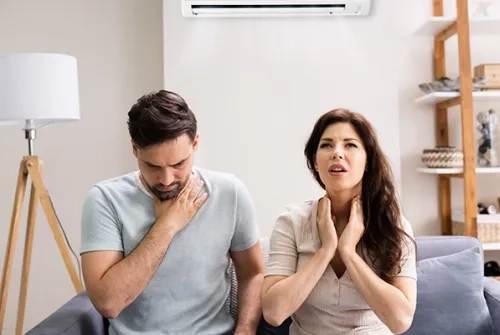Alo Yeditepe
Alo Yeditepe
The Priority Rule for the Protection from Summer Infections is Hygiene
Being outdoors in the summer months reduces the rate of transmission of especially airborne infections. However, with the effect of hot air on food, acute gastroenteritis, intestinal infections, or food poisoning are more common.
Head of Infectious Diseases and Clinical Microbiology Yeditepe University Hospitals Prof. Dr. Meral Sönmezoğlu gave information about the most common infections in summer and how to prevent them.
Frequency of Adenovirus Infections Increased
Prof. Dr. Sönmezoğlu said that they encounter adenovirus infection, which occurs mostly as a result of close contact and is more severe than the common cold, especially in recent times, and said, "It even starts in children and then infects parents."
Explaining that infections can be more serious in people with weak immune systems, especially in children, Yeditepe University Hospitals Infectious Diseases specialist Prof. Dr. Sönmezoğlu provided the following information about the transmission routes:
"Today there are over 50 different identified adenoviruses, and they can cause different infections. Although it can occur at any age, it is more common in children under 5 years of age, especially in crowded environments such as nurseries. Because it is transmitted by contact or by contact with respiratory droplets and contaminated surfaces. Many reasons such as the common use of items in this group of children, putting their hands on their faces more often, or not washing their hands as desired can accelerate contamination."
Reminding that although the symptoms are similar to a cold, they can be more severe, Prof. Dr. Sönmezoğlu said, "Symptoms may vary depending on the types of adenovirus. However, children may develop a runny nose, sore throat, and ear infections. One of the most common symptoms is red eye, known as conjunctivitis. Some people can also have stomach and bowel infections."
The Most Important Factor in Protection is Hand Washing
Indicating the importance of hand washing in protecting from adenovirus infections, Prof. Dr. Meral Sönmezoğlu said, "It is very important for children to acquire this habit from a young age. Surfaces and toys must also be disinfected. Because adenoviruses can remain on the surfaces for a long time, their infectiousness continues."
Accompanying Legionnaires' Disease in Air Conditioners Can Be Overlooked
Stating that this disease caused by a bacterium known as Legionalle increases in the summer months, especially with the widespread use of air conditioners, Prof. Dr. Meral Sönmezoğlu said, "Legionnaires disease is one of the diseases we fear in the summer months."
Stating that the disease may develop within 2-10 days after exposure to legionella bacteria, Prof. Dr. Meral Sönmezoğlu gave the following information:
"A legionnaire is a bacterium that multiplies where water accumulates. Shower heads proliferate rapidly in environments where water accumulates, such as air conditioners. When the shower or air conditioner is turned on, it is also sprayed and spreads to the environment. Inhalation causes a disease called legionnaires' pneumonia or pneumonia."
Indicating that the treatment of legionnaires' disease is different from common bronchitis and pneumonia, Prof. Dr. Sönmezoğlu said, "The disease can be overlooked from time to time. However, since the treatment differs, it is extremely important that it is brought to mind and investigated and given the appropriate treatment when the symptoms are observed.,
"It is hard to get an infection from seawater!"
Stating that a very important part of summer infections is pond infections, Prof. Dr. Meral Sönmezoğlu said that parents prefer pools for control, but the sea is much safer in terms of cleanliness than the pool. Stating that sea water is much cleaner and therefore it is much more difficult to get an infection from the sea, Prof. Dr. Meral Sönmezoğlu continued as follows:
"Pools, especially poorly cleaned pools, create the ideal environment for the spread of infections. Fungal infections, for example, can spread very rapidly from pools. However, chlamydia infection may also spread from the pool and cause an eye infection. Again, the beta bacteria that causes the common cold is transmitted from the pools."
Pool Cleaning Should Be Done According to the Number of People Per Square Meter
Stating that the pools can be safe if they are regularly cleaned with chlorine or ozone, Prof. Dr. Sönmezoğlu said, "But it is very important that the cycle is very good. However, the number of people per square meter should be calculated and cleaning should be done. Because if a pool is regularly cleaned but is used by too many people, then cleaning may not be enough."
Foods and Waters That Are Not Clean From Gastroenteritis
Reminding that gastroenteritis with high fever is one of the most common infections in the summer in some people with abdominal pain, diarrhea, and even in some people, Yeditepe University Hospitals Infectious Diseases Department Head, Prof. Dr. Meral Sönmezoğlu said that the main factor in its emergence was the food consumed without sufficient cleaning and dirty water. For this reason, Prof. Dr. Sönmezoğlu, who first pointed out the importance of hygiene in protecting from the disease, said, "Vegetables and fruits that are not washed should not be consumed. However, unhygienic, not well-cooked foods and foods sold outdoors should be avoided. In particular, the water of unknown origin should not be consumed during travel. One of the most important points is that antimicrobial drugs should not be used without consulting a physician."
Press Coverage: oncevatan | cumhuriyet | cnnturk | sabah | haberler | yenicaggazetesi
About
Faculty and Year of Graduation:
Medical Faculty of Ankara University, 1984
”
See Also
- What is Hepatitis B? What are its symptoms? How is it Transmitted?
- What is HMPV Virus? HMPV Symptoms and Ways of Transmission
- Why Is the Flu Lasting Longer This Year?
- What Precautions Should Be Taken Against the Cold Epidemic?
- Don't Be Late Fighting Against Diseases
- Antibiotics Kill Beneficial Bacteria, Not Viruses
- What is Hepatitis? What are the Symptoms and Treatment Methods?
- Symptoms and Treatment of Tick Bites
- Summer Infections
- Precautions Must Be Taken Against Loss of Life Due To Infection in Thalassemia
- Information on H1N1 (Swine Flu)
- Summer is Coming... Beware of food poisoning!
- Our Taboos Affect the Increase in the Number of HIV-Positive Cases in Turkey
- Strep A Symptoms and Treatment
- Do Not Put a Cigarette Butt or Pour Olive Oil or Liquid Soap on the Tick
- Reheat the Food You Cooked Only Once!
- HIV Can Be Hidden for 10 Years without Any Symptoms!
- 290 Million People Live Without Knowing They Have Hepatitis
- Things to Consider When Touching Meat at Eid
- What Is Anthrax Disease?
- The Way to Fight AIDS is to Raise Awareness First
- Still Not Too Late For Flu Vaccine
- What is Rhinovirus?
- Fighting with Thalassemia: Meral Yılmaz
- Thalassemia Spreads from the Mediterranean to the Whole of Europe with Migration!
- Early Treatment of Crimean Congo Hemorrhagic Fever is Vital
- Approximately 3 Million Patients Need Blood Transfusions Every Year in Turkey
- When to Get the Flu Vaccine
- Antibiotics Account For 14% of Prescription Costs
- West Nile Virus Replaces Malaria
- It Is Necessary to Try to Be Healthy in order to Be Protected
- A New Flu Outbreak is Expected Every 10 Years
- 63% of Vector-Borne Diseases are Caused by Lyme Disease
- Experts Warn About Flu Risk
- Mosquito Infection Risk
- Why aren’t Antibiotics Working Any More?
- The World Raises an “Alarm” on Antibiotic Resistance!
- What is COVID-19?
- The Mask Requirement was Removed and the Importance of Social Distance Increased!
- How to Prevent COVID-19 in School-Going Children
- WHO (World Health Organization) Warns for Antibiotic Resistance!
- Who Is Threatened by Monkeypox?
- Ways to Prevent Coronavirus
- Swine Flu / H1N1
- Life Returns to Normal with Caution
- What is Monkeypox Virus? What Are the Symptoms of the Monkeypox Virus?
- What is Lyme Disease?
- How to Tell if You Have a Mild Coronavirus?
- Pay Attention to These Rules for COVID-19
- Hand Sanitizer Usage Guide
Alo Yeditepe




